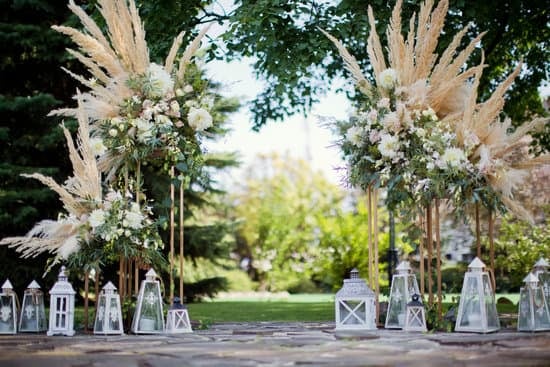Planning a wedding can be an exciting and joyful experience, but it also comes with a hefty price tag. One of the major costs to consider when planning a wedding is the food.
The big question on many couples’ minds is: how much does food cost for a wedding? In this article, we will delve into the various factors that impact the cost of wedding food, setting a budget, different catering options and their associated costs, additional expenses to consider, tips for saving money without sacrificing quality, and real-life examples of wedding food costs.
When it comes to planning a wedding, understanding the cost breakdown is crucial. Wedding food costs can make up a significant portion of your overall budget, so it’s important to have a clear understanding of what to expect. Factors such as the number of guests, menu choices, and style of service can all impact the final cost. Setting a realistic budget for wedding food is essential in order to avoid overspending and unnecessary stress.
In addition to the basic cost of catering for your wedding, there are also additional expenses to consider such as taxes, gratuities, and any extra services or features that you may want to include. However, there are ways to save money on wedding food without sacrificing quality.
By exploring different catering options and considering alternative approaches, couples can create a memorable wedding meal without breaking the bank. Throughout this article, we will provide valuable insight into navigating the world of wedding food costs and offer practical tips for planning a delicious and affordable menu.
Factors That Impact the Cost of Wedding Food
When planning a wedding, one of the major expenses to consider is the cost of food. The price of wedding food can vary significantly depending on various factors. Understanding these factors can help you set a realistic budget and make informed decisions when it comes to catering options.
Number of Guests
One of the most significant factors that impact the cost of wedding food is the number of guests. It’s simple math – the more guests you have, the more food you’ll need, and therefore, the higher the cost. When setting your budget, be sure to take into account your estimated guest count and anticipate any potential additions or subtractions.
Meal Service Style
The style of meal service you choose for your wedding can also impact the cost of food. A sit-down plated dinner will generally be more expensive than a buffet or family-style service. Additionally, cocktail-style receptions with passed hors d’oeuvres may require less food but can still come with a hefty price tag due to the variety and presentation of the items.
Menu Selection
The type and complexity of the menu you choose will also play a role in determining the overall cost of wedding food. Opting for high-end ingredients, elaborate dishes, or multiple courses will naturally drive up the price. On the other hand, simpler and more casual menu options can help keep costs down without sacrificing quality.
By considering these factors and understanding how they impact your overall budget, you can make informed decisions about your wedding food costs while still creating a memorable and enjoyable dining experience for your guests.
Setting a Budget for Wedding Food
When it comes to planning a wedding, one of the biggest expenses to consider is the cost of food. Setting a budget for wedding food is crucial in order to avoid overspending and to ensure that you can still have a memorable meal without breaking the bank. Here are some tips on how to set a realistic budget for wedding food:
1. Consider your total wedding budget: Before allocating a specific amount for food, it’s important to first determine your overall wedding budget. Experts recommend that around 40-50% of your total budget should be allocated towards the reception, which includes the cost of food and beverages.
2. Determine your guest count: The number of guests attending your wedding will greatly impact how much you’ll need to spend on food. Create a list of potential guests and use this as a guide when discussing catering options and pricing.
3. Research average costs in your area: The average cost per person for wedding food can vary greatly depending on your location and the type of catering you choose. Take some time to research local caterers and venues to get an idea of what the average costs are in your area.
By following these steps, you can begin to set a realistic budget for your wedding food that aligns with your overall financial plan. With careful consideration and planning, you can ensure that you’ll have delicious food at your wedding without overspending or sacrificing quality.
Different Catering Options and Their Associated Costs
When planning a wedding, one of the most significant expenses to consider is the cost of food. The catering options available for a wedding can vary greatly in terms of price, quality, and style. Understanding these different options and their associated costs can help couples make informed decisions when it comes to planning the menu for their special day.
Full-Service Catering
One popular option for wedding catering is full-service catering. This type of catering typically includes everything from food preparation to service and cleanup. Full-service caterers often provide a range of menu options, from plated dinners to buffet-style meals.
The cost for full-service catering can vary depending on factors such as the number of guests, menu selections, and service style. On average, full-service catering can range from $50 to $150 per person, but this cost can increase with added amenities such as open bars or specialty menus.
Food Truck or Station Catering
For couples looking for a more casual and unique dining experience at their wedding, food truck or station catering may be an appealing option. Food trucks or stations can offer a variety of cuisines and allow guests to choose their own dishes.
The cost for food truck or station catering can vary based on the number of stations or trucks needed, menu selections, and duration of service. On average, couples can expect to pay around $20 to $50 per person for this type of catering.
DIY Catering
Another option that some couples consider is DIY catering, where they either prepare the food themselves or have friends and family help with the cooking and serving. While DIY catering may seem like a cost-effective option at first glance, there are still expenses to consider such as ingredient costs, equipment rentals, and labor. Couples opting for DIY catering should carefully calculate all expenses involved before deciding if this option is truly more budget-friendly than professional caterers.
Additional Costs to Consider When Planning Wedding Food
When planning the food for your wedding, it’s important to consider all the additional costs that can quickly add up. Beyond the per plate cost of the meal, there are several other expenses to keep in mind as you set your budget. One major factor to consider is the cost of beverages.
This includes not only alcoholic drinks but also non-alcoholic options like sodas, juices, and water. Depending on your venue and catering package, you may need to budget for bar service and corkage fees for bringing in your own alcohol.
Another significant additional cost is gratuity and service fees. Many caterers and venues will include a service charge or gratuity in their pricing, but it’s essential to confirm this beforehand so that there are no surprises when the final bill arrives. The standard gratuity for wedding catering is around 15-20% of the total cost, so factoring this into your budget is crucial.
It’s also important to consider any rental costs that may be associated with your wedding food. This could include items like china, glassware, flatware, linens, tables, chairs, and even portable kitchen equipment if your chosen venue doesn’t have a commercial kitchen on-site. These rentals can significantly impact the overall cost of your wedding food, so be sure to get a clear estimate from your caterer or rental company when setting your budget.
| Additional Cost | Estimated Cost |
|---|---|
| Beverages (alcoholic & non-alcoholic) | Varies based on consumption and package |
| Gratuity and Service Fees | Around 15-20% of total catering cost |
| Rental Costs (china, glassware, etc.) | Depends on number of guests and type of rentals |
Tips for Saving Money on Wedding Food Without Sacrificing Quality
Planning a wedding can be an expensive endeavor, and one of the major costs to consider is food. However, there are ways to save money on wedding food without sacrificing quality. Here are some tips to help you stay within your budget while still providing a delicious and memorable meal for your guests.
One way to save money on wedding food is to choose a less traditional catering option. Instead of a sit-down dinner, consider having a buffet or family-style meal. These options tend to be more cost-effective, as they require less staffing and service. Another alternative is to have food trucks or stations with different cuisine options, which can add an element of fun and variety to your wedding while also being budget-friendly.
Another cost-saving tip is to carefully consider the timing of your wedding reception. If you schedule your event during off-peak times, such as a brunch or afternoon reception, you may be able to take advantage of lower catering prices. Additionally, having a shorter reception or cutting down on the number of courses in the meal can help reduce costs without compromising on taste and quality.
Finally, another way to save on wedding food is by being mindful of portion sizes and menu choices. Consider serving smaller portions or opting for less expensive menu items without sacrificing flavor. Also, be strategic about the types of alcohol served during the reception as this can significantly impact your overall catering costs.
By implementing these tips for saving money on wedding food, you can create a memorable and satisfying dining experience for your guests without breaking the bank. With careful planning and consideration of alternatives, it’s possible to stay within budget while still delighting everyone’s taste buds on your special day.
Real-Life Examples of Wedding Food Costs and What to Expect
When it comes to planning a wedding, one of the biggest expenses to consider is the cost of food. Many couples wonder, “how much does food cost for a wedding?” The truth is that the cost of wedding food can vary greatly depending on a number of factors. Let’s take a look at some real-life examples of wedding food costs and what to expect when budgeting for this important part of your big day.
Here are some typical costs associated with wedding food:
- Catering: This is often the largest expense when it comes to wedding food. Costs can range from $25 to $100 or more per person, depending on the type of meal you choose and the level of service provided.
- Bar service: If you plan to have an open bar at your wedding, be prepared for additional costs. Some venues offer packages that include bar service, while others charge per drink or have a minimum spend requirement.
- Additional fees: Don’t forget to factor in additional fees such as gratuity, service charges, and taxes, which can add 20-30% onto your catering bill.
It’s important to remember that these costs are just averages and can vary widely based on factors such as location, time of year, and the specific vendors you choose. To get an accurate idea of how much your wedding food will cost, it’s best to reach out to potential caterers and venues for personalized quotes.
When setting your budget for wedding food, it’s also important to consider any additional costs that may arise. These can include:
- Rentals: If your venue does not provide items such as tables, chairs, linens, and tableware, you may need to budget for rentals from an outside vendor.
- Special dietary needs: If any of your guests have dietary restrictions or special requests, you may incur additional costs in order to accommodate them.
- Vendor meals: Don’t forget about feeding your vendors. It’s customary to provide meals for photographers, DJs, and other staff working at your wedding.
By considering these real-life examples and potential additional costs when planning your wedding food budget, you’ll be better prepared to create a memorable meal without breaking the bank.
Conclusion
In conclusion, planning a memorable wedding meal on a budget is entirely possible with careful consideration and research. While the cost of food for a wedding can vary greatly depending on factors such as the number of guests, menu choices, and catering options, there are ways to manage expenses without sacrificing the quality of the dining experience.
Setting a realistic budget early on and exploring different catering options can help couples make informed decisions about their wedding food costs. It’s important to consider all additional expenses that may come with planning the meal, such as service fees and gratuities.
When it comes to saving money on wedding food, there are various strategies that couples can implement without compromising on the overall experience. Some tips include opting for buffet-style or family-style dining over plated dinners, choosing seasonal and locally sourced ingredients, and considering non-traditional menu options. By thinking outside the box and being open to alternative ideas, couples can create a memorable dining experience for their guests while staying within their budget constraints.
Real-life examples of wedding food costs provide valuable insight into what couples can expect when planning their own weddings. Understanding these real costs allows for better budgeting and decision-making when it comes to selecting catering services or creating a personalized menu.
Ultimately, creating a memorable wedding meal without breaking the bank is possible with careful planning, thoughtful consideration of expenses, and creative problem-solving. With the right approach, couples can enjoy a delicious and satisfying wedding feast while staying within their means.
Frequently Asked Questions
What Is a Good Budget for Food at a Wedding?
The budget for food at a wedding can vary depending on the number of guests and the type of catering chosen. However, a good starting point is to allocate around 40-50% of the total wedding budget for food and drinks.
What Is a Fair Wedding Budget?
A fair wedding budget is one that takes into account the couple’s financial situation and priorities. It should be realistic and consider all the necessary expenses, including venue, catering, attire, photography, and other essential elements without overspending or going into debt.
What Is a Basic Wedding Budget?
A basic wedding budget typically includes expenses such as the venue, catering, attire, photography, entertainment, flowers, and decorations. It’s important to prioritize what matters most to the couple while also setting aside some extra funds for unexpected costs that may arise during the planning process.

I have been involved in marriages for over 20 years helping couples and singles understand more about them.





